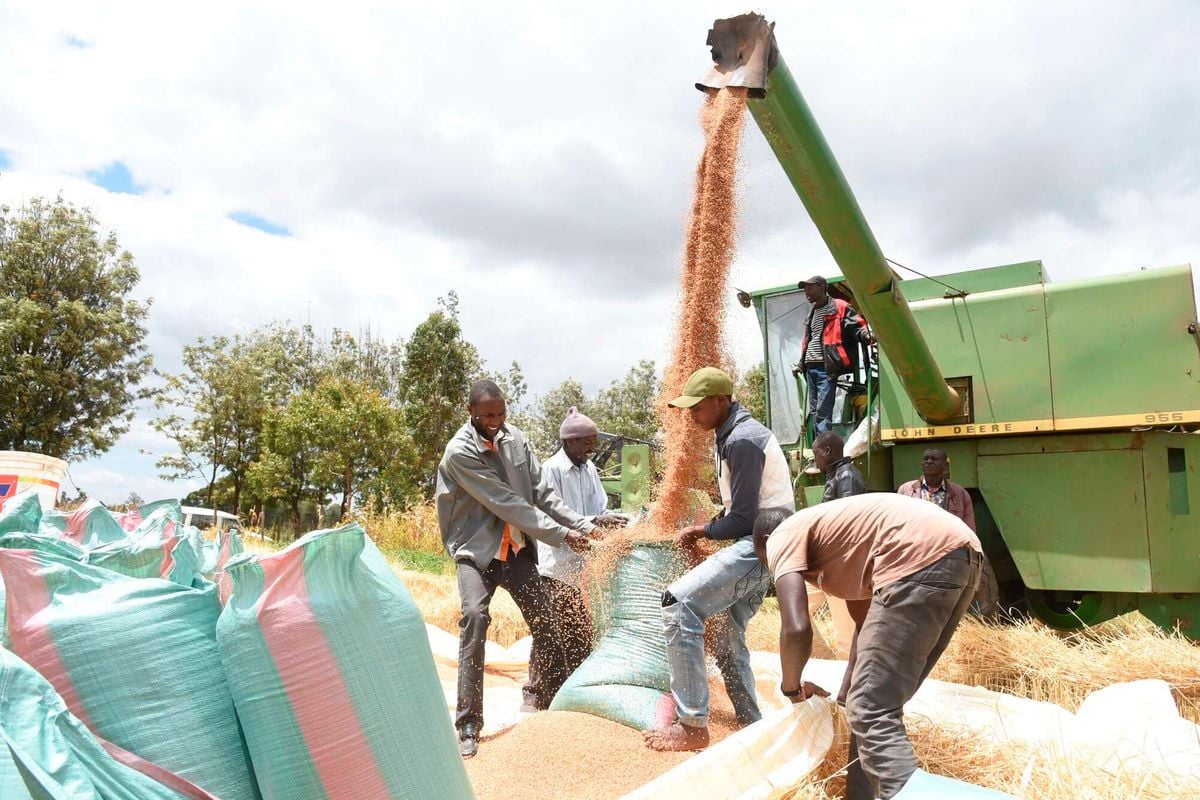
Imports from Russia grew at the fastest pace amongst Kenya’s top 10 global source markets in the quarter ended June on increased orders for wheat, official data shows.
Traders shipped in goods valued at Sh25.62 billion from the Eastern European economic powerhouse, three-quarters (74.22 percent) more than a similar period a year earlier.
This helped Russia to become the seventh largest source of imports into Kenya from the ninth position a year ago, overtaking Saudi Arabia and South Africa in the review period.
Kenya National Bureau of Statistics (KNBS) data shows the bulk of the imports from Russia, which has been at war with neighbouring Ukraine for more than two years, was wheat.
“In Eastern Europe, there was a remarkable increase in the value of imports from the Russian Federation from Sh14.7 billion in the second quarter of 2023 to Sh25.6 billion in the review period. This was mainly driven by an increase in imports of wheat and chemical fertilizers from this source,” KNBS wrote in the quarterly Balance of Payments (BOP) report.
Shipments of wheat, meslin, and hard wheat from Russia amounted to Sh21.66 billion, making up 84.55 percent of total imports.
Fertiliser accounted for 12.31 percent, or Sh3.15 billion, of the imports from Russia in the three months, according to the KNBS.
The data shows Russia was the largest source market for millers and traders, accounting for about three-quarters (74.79 percent) of the Sh28.96 billion total value of unmilled wheat imported into Kenya in the review period.
Importation of wheat has been growing since last year when the National Treasury slashed duty to 10 percent in July 2023 from the standard 35 percent rate for the East African Community on successfully seeking approval from the bloc’s council of ministers.
The discounted import duty window, which was initially to end in June 2024, has been extended for another year.
KNBS data shows volumes of unmilled wheat imports jumped 62.97 percent in the quarter ended June 2024 to 817,740 metric tonnes compared with 501,767 tonnes in the same period a year earlier.
Kenya largely relies on imports to meet as much as three-quarters of the demand for the commodity used in baking food such as bread, chapati, and cakes which form part of daily meals for households.
The reduced import duty, the National Treasury wrote in a statement in June last year, will “ensure that there is enough wheat to meet local demand, while at the same time protecting wheat farmers from unfair competition from imported wheat”.
“The importation of wheat will be undertaken upon the recommendation by the Ministry of Agriculture who will ensure wheat millers, as a priority, purchase local wheat before they are allowed to import,” the statement read in part.
Kenya experienced record prices for the commodity from late 2022 after local production was hit by a biting drought, while imports from Russia and Ukraine were hampered by the unresolved war as well as export curbs in India.
The increased imports have helped stabilised milled wheat flour prices which retailed at an average of 170.24 per two-kilogramme packet after crossing Sh200 last year.
The KNBS data, however, shows imports from Ukraine, also a previous major source of grain into Kenya, posted a sharp drop of 88.51 percent in the review quarter to Sh410.90 million from nearly Sh3.58 billion a year earlier.
This came in a period when Ukraine, which was in February 2022 attached by Russia, launched the Ukrainian Sea Corridor to facilitate its exports after Moscow unilaterally withdrew from the Black Sea grain deal in mid-2023.
The year-long agreement Black Sea grain deal, initiated in July 2022, had allowed exports from the war-ravaged country to move via a safe channel through the Black Sea.
The Black Sea agreement had been struck in Istanbul, following talks that involved host Türkiye, Russia, and the United Nations, paving the way for the resumption of grain exports via the route, months after activities had been grounded by the brutal war.
The jump in purchases of wheat from Russia helped the country move up two places to become Kenya’s seventh-largest source market by value of goods.
China remained the largest source market after exporting goods worth Sh131.62 billion in three months through June, a 15.08 percent rise over a year ago.
China was followed by the United Arab Emirates which shipped in merchandise valued at Sh90.90 billion, India (Sh57.73 billion), the US (Sh37.02 billion), Malaysia (Sh27.21 billion), and Japan (Sh26.80 billion).









